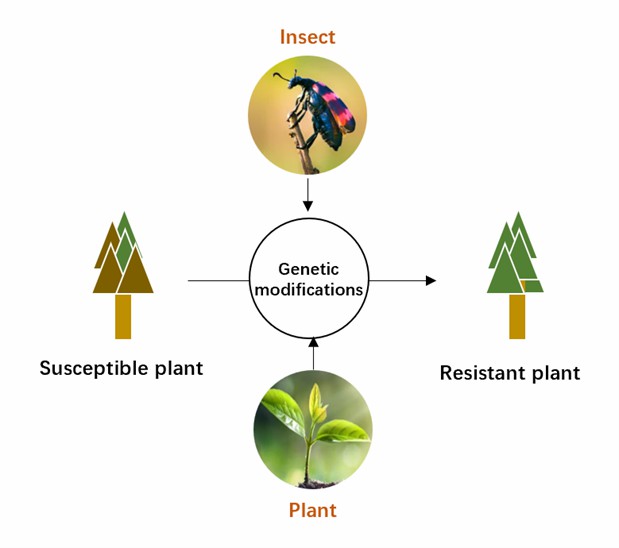Using natural host resistance to control nematode parasitism on crops has been the preferred strategy as an environmentally benign and more cost-effective alternative to chemical control. Natural resistance genes could exist in both a polygenic manner and single dominant nature. The resistance conferred by host plant single dominant resistance genes, the R genes from plants, interacts specifically with corresponding avirulence (Avr) genes in the nematode, resulting in a so-called 'gene-for-gene' interaction. This type of interaction initiates a cascade of defense responses in plants.
Lifeasible provides a range of services to our customers worldwide, covering transgenic strategies based on natural resistance genes. With extensive experience and expertise in plant science, we are committed to providing you with timely and high-quality deliverables.
 Fig.1 Transgenic strategy for resistance to plant nematodes.
Fig.1 Transgenic strategy for resistance to plant nematodes.
Lifeasible has been dedicated to planting science for many years. We'll finish your studies on time and within budget. We guarantee the confidentiality and sensitivity of our customer's data. If you are interested in our services or have any questions, please feel free to contact us or make an online inquiry.
Lifeasible has established a one-stop service platform for plants. In addition to obtaining customized solutions for plant genetic engineering, customers can also conduct follow-up analysis and research on plants through our analysis platform. The analytical services we provide include but are not limited to the following:
STU-CRISPR System Improves Plant Genome Editing Efficiency
April 19, 2024
Application of Exosomes in Facial Beauty
April 12, 2024